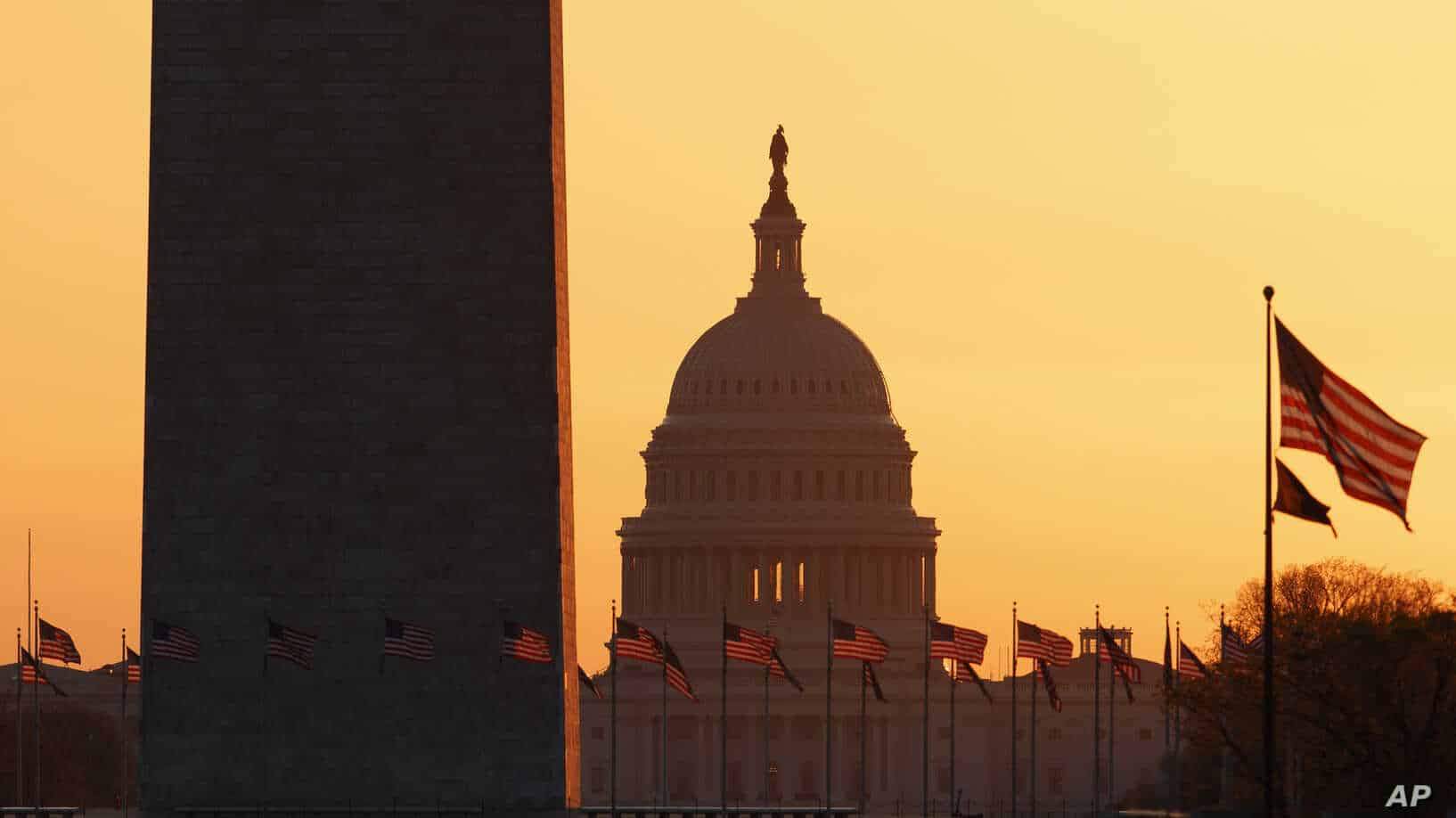US Lawmakers Race to Prop Up Economy Slammed by Coronavirus

U.S. lawmakers are racing to try to offset some of the severe damage wrought on the economy by attempts to contain the coronavirus.
The stock market plunged again Wednesday — wiping out most of its gains under President Donald Trump's administration — as activity in public places across the country grounds to a halt.
With factories, businesses, restaurants and schools shutting down and industry in shambles, workers are facing layoffs, cutbacks in hours or having to make the difficult choice of working while ill due to the lack of paid sick leave.
Democratic and Republican leaders have dismissed concerns the U.S. Congress should follow the example of quarantining, arguing that lawmakers must stay in Washington to immediately address the prospect of soaring unemployment rates and a looming recession.
"The coronavirus is slowing our economy to a near standstill," Senate Minority Leader Chuck Schumer of New York said on the Senate floor Wednesday. "We're almost certainly anticipating a recession."
"You go to the streets of many cities, towns and villages, they're empty," he added. "Schools are closed in large portions of the country. And businesses are struggling not to lay off workers because they don't have customers. They don't have clients. They don't have income. So, there's a greater urgency here."
Lawmakers and the White House refer to their response to the health and economic crisis as a series of phases. Here is a summary of what each phase has been designed to do.
Phase One
Lawmakers initially focused on funding U.S. public health efforts to combat the coronavirus, passing an $8.3 billion package earlier this month.
Trump asked Congress for little more than $2 billion in funding, with a plan to fund $535 million of that request by rerouting unused funds allocated to fight Ebola. Democrats pushed back on that plan and ultimately negotiated a bill with the White House that included $3 billion for coronavirus vaccine development and $1 billion for U.S. international aid efforts to combat the virus.
Trump signed that bill on March 6.
Phase Two
The Democrat-majority House of Representatives took the lead on negotiating the first bill with Treasury Secretary Steve Mnuchin to address the devastating economic impact of the crisis.
The Senate passed "phase two" of the bill Wednesday by a 90-8 vote. The bill offers COVID-19 testing without cost, an extension of unemployment benefits to address the needs of workers who may be laid off due to the crisis, as well as paid sick leave for workers at some U.S. companies.
Many lower-income workers in the United States make up the quarter of the American workforce that has no access to paid sick leave.
"One of the first things we need to do is to assure those employees who may not feel well, that it's best to stay home. And there's a way to do that without sacrificing the basics of life, your home, your food and what your family counts on," Democratic Sen. Dick Durbin of Illinois said on the Senate floor Wednesday. "This is an important step forward to let the people across America know we're doing what we can here in the Senate and in the House."
The House-passed bill has several loopholes, which means the sick leave extension would not apply to companies with fewer than 50 employees or more than 500 workers. The bill also caps the amount of sick leave pay workers can collect.
Senate Majority Leader Mitch McConnell of Kentucky has expressed reservations about the bill but encouraged Republicans to pass it.
"I do not believe we should let perfection be the enemy of something that will help even a subset of workers," McConnell said on the Senate floor Wednesday. "The House bill has real shortcomings. It does not even begin to cover all of the Americans who will need help in the days ahead."
The Republican-majority Senate passed the bill Wednesday, as it became clear that lawmakers would need to quickly work on passage of a more ambitious economic stimulus bill.
Phase Three
The Senate is taking the lead on working with the White House to craft a massive economic stimulus plan that is expected to reach at least $1 trillion in cost.
The Treasury Department proposed two $250 billion cash payments to hundreds of millions of Americans, based on family and income size starting in April. That proposal also contains $50 billion to help airline companies that have had to reduce the number of flights by as much as 75% in recent weeks. Under that plan, the U.S. government would also offer billions of dollars in loans to small businesses to help mitigate the damage done by closures to aid in social distancing and quarantines.
"Many of us on the Democratic side are working on a program that we think will say to families, 'We're not just going to send you one check and wish you the best. We're going to stand by you through this very difficult, challenging time,'" Durbin said Wednesday.
Trump's previous proposal to institute temporary payroll tax cuts until after the November presidential election is no longer generating significant discussion as part of the negotiations. Congressional Democrats criticized that proposal, suggesting Trump was using the crisis to benefit his own reelection campaign.
Lawmakers are expected to pass this new round of economic relief as early as next week to calm an anxious public.
Trump recognized the effort Wednesday, saying the work writing the bill was "moving along fast. There's a great bipartisan effort going on that I haven't really seen before to this extent."
Photo: AP











